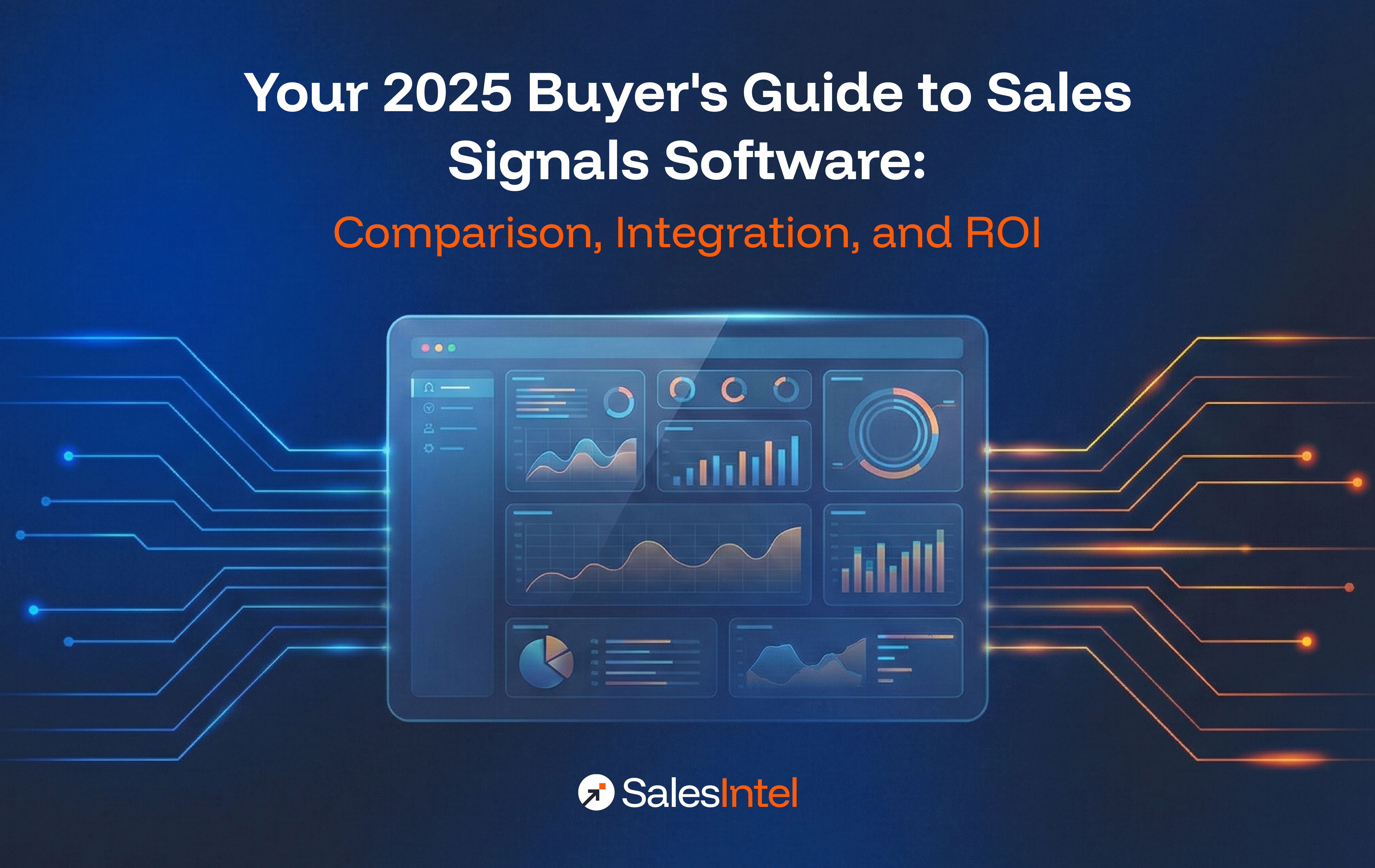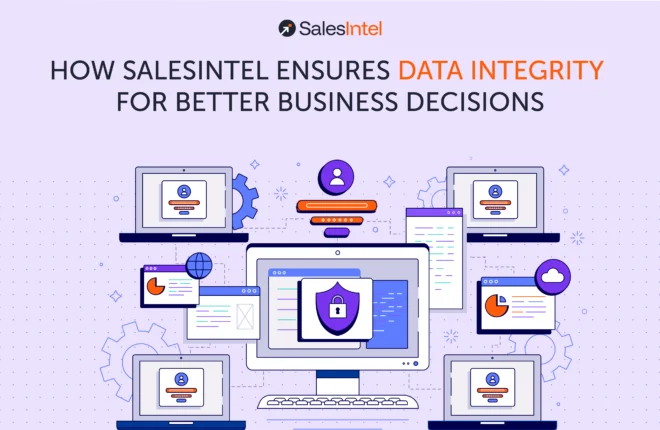Imagine running a fintech sales team without data intelligence. It’s like driving in the dark without headlights. You might get somewhere, but you’ll hit a lot of bumps along the way.
Fintech companies operate in a highly competitive space where traditional sales tactics no longer suffice. Customers expect personalized experiences, sales teams need efficient lead qualification, and risk management is more critical than ever. Data intelligence serves as the backbone of a scalable sales pipeline, helping fintech firms make smarter decisions, optimize customer interactions, and reduce inefficiencies.
In this blog, we’ll explore how data intelligence powers fintech sales strategies, ensuring businesses don’t just chase leads but close them efficiently.
Understanding Data Intelligence in Fintech
Gone are the days when a one-size-fits-all approach worked in finance. Customers today expect hyper-personalized experiences, and fintech companies that fail to deliver will find themselves losing ground to competitors.
Data intelligence enables fintech firms to segment their audience based on multiple parameters such as demographics, spending behavior, and transaction history. This granular understanding of customer behavior allows for highly targeted outreach and offerings.
For instance, by analyzing spending habits, a fintech company may identify young professionals who frequently dine out. Instead of offering them a generic credit card, they can provide a dining rewards credit card with exclusive cashback offers at restaurants. This level of personalization not only attracts new customers but also fosters long-term loyalty.
Enhancing Customer Profiling and Segmentation
Data intelligence allows fintech companies to segment their audience based on various parameters such as demographics, behavior, and transaction history.
For instance, by analyzing spending habits, a fintech firm can identify young professionals who frequently dine out and offer them tailored financial products like dining rewards credit cards. This level of personalization not only attracts customers but also fosters loyalty.
Predictive Analytics for Sales Forecasting
Wouldn’t it be great to have a crystal ball revealing future sales trends? While mysticism isn’t the best business strategy, predictive analytics comes pretty close.
By analyzing historical data and market trends, fintech companies can forecast sales trends, anticipate customer needs, and allocate resources efficiently. This ensures sales teams aren’t just reacting to market changes but proactively preparing for them.
According to Grand View Research, the global artificial intelligence in fintech market was valued at USD 12.11 billion in 2022 and is projected to reach USD 41.16 billion by 2030, growing at a compound annual growth rate (CAGR) of 16.5% from 2022 to 2030. This highlights the increasing reliance on AI-driven predictive analytics to refine sales strategies.
For example, a digital lending platform can analyze past borrowing patterns to predict a surge in small business loan applications post-tax season. This enables them to optimize their marketing efforts and ensure they have the resources in place to handle increased demand.
Streamlining Lead Generation and Qualification
Chasing leads without data is like fishing without bait. You’re just hoping something bites. Fintech firms need a more precise approach.
Data intelligence automates lead identification and qualification, ensuring sales teams focus on high-value prospects instead of wasting time on unqualified leads. Tools like SalesIntel’s ICPIntel analyze key attributes such as firmographics, technographics, transaction patterns, and engagement signals to surface accounts that are not just a fit, but also ready to buy. With advanced algorithms assessing factors like creditworthiness and buying intent, teams can prioritize the leads most likely to convert and build smarter, faster pipelines.
For example, a fintech company offering small business loans can use machine learning models to evaluate a potential client’s financial health, online behavior, and loan repayment history before even making the first sales call. This data-driven approach not only saves time but also increases conversion rates by focusing on leads that actually need the product.
Personalizing Customer Interactions
Nobody enjoys receiving generic marketing emails that feel like they were sent to thousands of people. Customers expect brands to understand their unique needs and preferences.
Data intelligence allows fintech firms to create tailored communication strategies, offering products and services that align with individual behaviors and goals.
Consider a customer who frequently saves money for travel. Instead of sending them generic financial planning tips, a fintech app could suggest a specialized travel savings plan, exclusive travel insurance offers, or credit cards with airline rewards. This level of personalization doesn’t just improve customer engagement, it builds brand loyalty.
Enhancing Risk Management
Risk and finance go together like peanut butter and jelly, except one is significantly less tasty. With digital transactions rising, fintech firms must prioritize risk management and fraud detection.
AI-powered data intelligence helps fintech companies analyze transaction patterns to detect anomalies that may indicate fraud. Suspicious transactions can be flagged in real time, enabling swift action to prevent financial losses.
According to Itransition, 90% of banking institutions already use AI for fraud detection, proving just how crucial data intelligence is for security.
For example, a fintech platform might detect an unusual withdrawal pattern from a customer’s account, like multiple transactions in different cities within minutes. By flagging this activity, they can freeze the account and verify the transaction before any real damage is done.
Overcoming Challenges in Data Utilization
While the benefits of data intelligence are clear, implementing it comes with challenges.
- Data Privacy Regulations: Fintech firms must comply with GDPR, CCPA, and financial regulations, ensuring customer data is protected.
- Integration Complexities: Many fintech companies struggle to integrate data intelligence tools seamlessly with existing CRM and sales systems.
- Data Quality Issues: As the saying goes, “Garbage in, garbage out.” The accuracy of data-driven insights depends on the quality of the data being analyzed.
To overcome these challenges, fintech firms must establish strong data governance frameworks, invest in advanced cybersecurity measures, and continuously refine their data collection processes.
Concluding: Data Intelligence as the Linchpin of Scalable Sales
In the fast-moving fintech industry, data intelligence isn’t just a competitive advantage—it’s a survival tool. Without it, sales teams are left guessing instead of strategizing, and that’s a dangerous game in a data-driven world.
From enhancing customer segmentation to streamlining lead qualification and improving risk management, data intelligence helps fintech companies build a scalable, efficient, and profitable sales pipeline. But having access to raw data isn’t enough. The real magic happens when fintech firms use the right tools to extract actionable insights and turn them into sales opportunities.
That’s where SalesIntel comes in. With human-verified B2B contact data, real-time intent signals, and advanced firmographic insights, SalesIntel helps fintech companies refine their targeting, personalize outreach, and accelerate deal closures. Whether it’s identifying high-value prospects, enriching CRM data, or ensuring compliance with GDPR and CCPA, SalesIntel empowers sales teams to make smarter, data-backed decisions.
The future belongs to fintech firms that don’t just collect data but know how to use it strategically. After all, data-driven decisions are the difference between chasing sales and closing them with precision.




